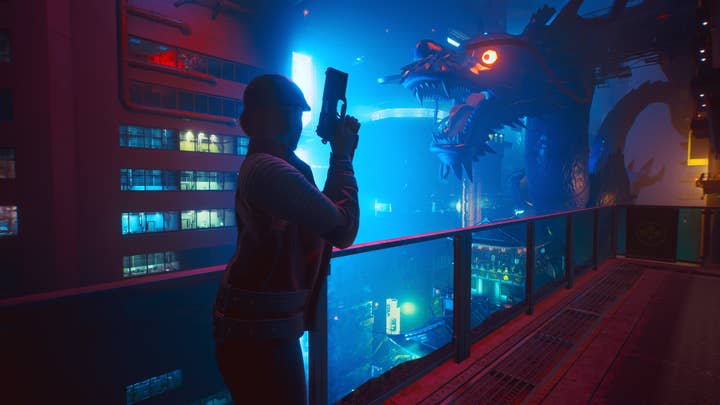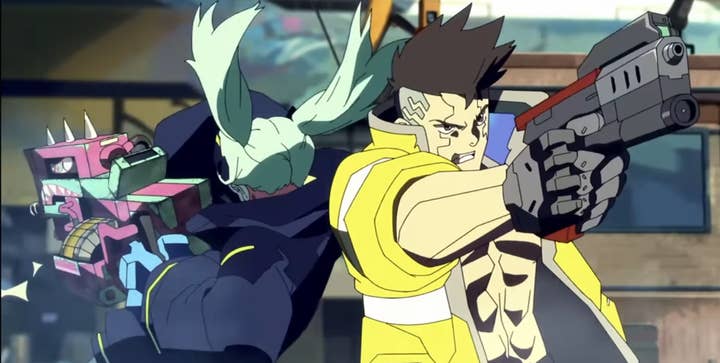Cyberpunk’s redemption took both hard work and uncanny luck | Opinion
The three-year path from one of the industry's most catastrophic launches to widespread acclaim is the story of a miracle, not a case study to be emulated
Working on the basis that time heals all wounds (well, time and a hell of a lot of patches), I finally took the plunge back into Cyberpunk 2077 over the year-end holidays, and found myself enthralled by Night City – just as I’d fervently hoped I would be three years ago when the game originally launched.
So good is the game at this point, in fact, that I was happy to fork out for the Phantom Liberty expansion – a DLC pack whose very existence would have seemed laughable in December 2020, when the game’s launch condition was so breathtakingly awful that Sony took the highly unusual decision to unilaterally pull it from the PlayStation Store.
I am far from being alone in re-evaluating Cyberpunk’s charms. Last year, the launch of the well-received expansion seemed to mark the final evolution of public opinion on the game, and after a couple of years of people whispering “hey, it’s not bad now” in dark corners of the internet, it found itself being openly acclaimed.
Phantom Liberty has an attach rate of almost 25%, similar to the DLC packs for The Witcher 3, which is all the more remarkable when you consider how long after the game’s launch it appeared. Cyberpunk even made its way onto some game awards nomination lists, in rather double-edged-sword type categories like “most improved” – a category to which a game can only be nominated if it was formerly in an absolute state.
It's been a long, hard, and strange road for Cyberpunk to get here – and I think it’s worth emphasising just how long (three years, and one can only guess at the sheer number of man-hours involved), just how hard, and just how strange that journey has been, because there’s a risk that the wrong lessons might be learned from that process.
Games like Cyberpunk should never be taken as an example of how a weak game at launch can find its feet later on. They are sobering lessons in how much time and resources are required for that to happen
Cyberpunk 2077’s story isn’t proof that a game launched in a completely broken and incomplete state can be turned around with a bit of grit and elbow grease on the part of the developer. Rather, this is about how if the developer of such a game makes a truly Herculean effort, it’s just about possible for it to get lucky – for the stars and planets to align, creating the nearest damned thing the games business has to a bona fide miracle.
So what were the planets that needed to be in alignment for Cyberpunk 2077 to pull off this impression of a phoenix rising from the ashes?
Let’s start with the most straightforward but perhaps the most underappreciated: this would never have happened if CD Projekt Red wasn’t an independent company whose entire existence is predicated upon their reputation and goodwill from their fanbase. CDPR – which recently reasserted its intention to remain independent and disinterest in being caught up in the industry’s recent spree of acquisitions – made an early decision that they would knuckle down and fix this initially disastrous game, knowing that this would take years, cost a fortune, and impact their plans for DLC and future development schedules.
This is, to put it mildly, a rather different decision from the decision any major publisher in the industry would have made. If Cyberpunk 2077 was a game developed and launched by a major publisher, the decision would have been simple: cut and run. The justifications would have ruminated on sunk cost fallacies and throwing good money after bad, but the decision would have been simple: cut the rope and let it sink.
That’s not merely conjecture; we’ve seen plenty of cases where publishers have done precisely that. Often, they’ll do the bare minimum to bring a broken game up to technically functioning standards (to avoid falling foul of consumer laws and getting a dose of stink-eye from platform holders), and then issue a terribly regretful statement about how sorry they are everything isn’t living up to expectations, before giving the whole game a heave off the deck and watching it disappear into the murky depths.
Perhaps the most famous case of this is EA’s Anthem, a Bioware-developed title that was enormously hyped before a hugely underwhelming launch saw the publisher rapidly decide it wasn’t worth rescuing. As frustrating as that decision was (Anthem remains the last time I ever pre-ordered a game, a habit of which I was thoroughly broken by that experience), the logic makes sense. For a company like EA with a large number of studios and franchises under its umbrella, dropping even a heavily hyped up game like Anthem doesn’t make that much of a dent in its standing; whereas for a company like CDPR, leaving Cyberpunk in a broken state would have deeply impacted its ability to promote and sell any of its future games.

So instead, CDPR did what most companies in the industry could not justify: they knuckled down and spent literally years doing an incredible amount of hard work to bring the game up to standard. It’s still not the game that was hyped, but that was probably never going to be the case; what it is now is a great game, an almost total reversal of its original state.
As immensely laudable and impressive as all that work is, it’s also worth noting that this alone doesn’t fully explain how public perception of the game was turned around. In fact, a fair bit of the credit for that lies with Edgerunners, the Netflix animated show based on the Cyberpunk game universe which was extremely well-received and arrived with almost miraculous timing, resuscitating interest in the game just as its patches had finally made it into a good experience for players.
Had any of these factors not lined up, Cyberpunk could still be in the dustbin of history
A lot of hard work that went into ensuring that the game was in good condition in time for the Netflix show to drive players back to it, of course – even if the planets are aligning for you, there’s skill and dedication required to putting yourself into a position to capitalise upon that – but the point is that this is a boon almost no other game could have relied upon. What are the odds that any other game, busted at launch, would find itself with a hit streaming show serving to convince people to give it a second chance a couple of years down the line?
It’s also worth noting how much of Cyberpunk’s renaissance has been quietly supported by the simple progress of technology. At its launch, the game was pretty much unplayable on PS4 – hence Sony taking the unusual step of delisting it – but by the time it was patched up to the vastly improved 2.0 version last year, the target console platforms were PS5 and Xbox Series X, with the older hardware never receiving either this major overhaul of the game or the Phantom Liberty DLC. Time was on Cyberpunk’s side. Had the game launched a year or two earlier, CDPR would have been forced to treat PS4 as their main target platform; as it was, they did make it significantly more playable on that platform, but were able to drop ongoing support with version 1.6 and focus on a vastly more powerful hardware baseline.
That the stars aligned in this way doesn’t detract from CDPR’s achievements or the hard work they’ve done. Nor should we overlook that the company was smart and careful about ensuring that the game was positioned to take advantage of each of these opportunities on its road to redemption. However, had any of those factors not lined up, this is a game that – for all CDPR’s work – could still very much be in the dustbin of history.
Cyberpunk’s journey has been extraordinary; that’s precisely the point. Most games that launch broken will never have the opportunity to make this kind of journey and, for all that this has become a positive story in the end, CDPR would still have been far better served in every sense by holding the game back to launch in a playable state.

This isn’t the first game that’s taken this long and difficult path from being universally derided at launch to being broadly acclaimed a few years later, of course. No Man’s Sky is a good example, and parallels the situation with Cyberpunk in that developer Hello Games would never have been able to promote a future game successfully if it hadn’t put in the work to fix its broken debut title.
CDPR would still have been far better served in every sense by holding the game back to launch in a playable state
Even Final Fantasy XIV fits the profile to some extent, though the reasons for giving that game the overhaul it needed to thrive were a little different; it had a hugely popular predecessor so the market was clearly there for the right product, MMORPG economics work very differently, and launching a genuinely derided and hated game in the mainline Final Fantasy series would be an incredible disaster for Square Enix, whose recent business strategy relies instead of launching merely mediocre and forgettable games in the mainline Final Fantasy series.
The point remains that these games, like Cyberpunk, should never be taken as an example of how a weak game at launch can find its feet later on. Rather, they are sobering lessons in just how much time and resources are required for that to happen, and how even with that dedication of time and resources, you still need a hefty dose of luck and good timing for the process to work.
Cyberpunk’s journey to redemption is fascinating – but this is an unusual miracle, not a replicable case study.








